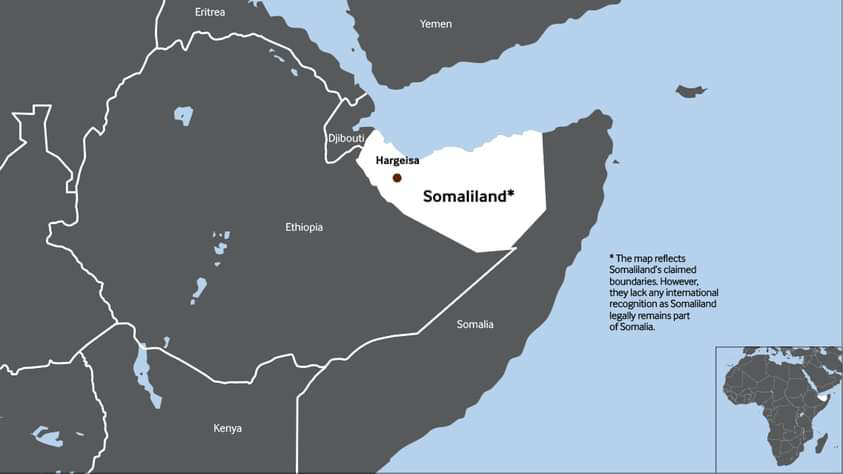Geopolitical interest in the Horn of Africa.
January 2, 2024
Ottawa, Canada
The Horn of Africa is a region of significant geopolitical interest to several global powers, including the USA, UK, China, Russia, Turkey, UAE, Egypt, Saudi Arabia, Qatar, and Iran. This region, comprising countries such as Ethiopia, Eritrea, Djibouti, Somalia, and Sudan, holds strategic importance due to its proximity to key maritime trade routes, its potential natural resources, and its geopolitical significance in the broader context of regional stability. The following essay will examine the geopolitical interests of each of these countries in the Horn of Africa.
The United States has long viewed the Horn of Africa as a crucial area for counterterrorism efforts and regional stability. The presence of terrorist groups such as Al-Shabaab in Somalia and the strategic location of Djibouti, which hosts a major U.S. military base, underscores the significance of the region to U.S. security interests. Additionally, the U.S. has sought to counter the growing influence of China and Russia in the region, leading to increased diplomatic and military engagements.
The United Kingdom has historical ties to the Horn of Africa, particularly through its former colonies of Somalia and Sudan. Today, the UK maintains an interest in the region's stability, security, and economic development. It has also been involved in counterterrorism efforts and humanitarian assistance, aligning its interests with those of the United States and other Western powers.
China's interest in the Horn of Africa is primarily driven by its economic and strategic objectives. The region offers access to critical maritime trade routes and potential investment opportunities in infrastructure, energy, and natural resources. China's engagement in the region, particularly through its Belt and Road Initiative, has led to significant infrastructure development, as well as port and naval facility investments in countries like Djibouti and Sudan.
Russia has increasingly sought to expand its influence in the Horn of Africa as part of its broader efforts to reassert itself as a global power. Russia's interests in the region include military cooperation, access to naval facilities, and potential arms sales. In recent years, Russia has pursued closer ties with countries like Sudan and Eritrea, viewing the region as a potential foothold in the strategic Red Sea region.
Turkey has also emerged as a significant player in the Horn of Africa, leveraging its economic and military capabilities to expand its influence. Turkey's interests in the region include trade, investment, and military cooperation, as well as humanitarian and development assistance. Turkey has established military bases in Somalia and Qatar, signalling its commitment to the region's security and stability.
The United Arab Emirates (UAE) has become increasingly active in the Horn of Africa, pursuing a multifaceted strategy that includes military interventions, investment in ports and infrastructure, and diplomatic initiatives. The UAE's interests in the region are driven by its desire to counter Islamist extremism, secure maritime trade routes, and expand its geopolitical influence.
Egypt has historically seen the Horn of Africa as part of its sphere of influence, given its control over the Suez Canal and its strategic position in North Africa. Egypt's interests in the region center on maintaining stability, countering threats from Islamist groups, and securing its access to the Red Sea and the broader Indian Ocean.
Egypt has a long and significant interest in the use of the Nile River. The Nile is the longest river in the world, and it has been a crucial resource for the people of Egypt for thousands of years. The river has historically provided water for drinking, agriculture, and transportation, and it continues to be a vital lifeline for the country.
Egypt's interest in the Nile River is not only due to its historical and cultural significance but also because the country is heavily reliant on the river for its water supply. The Nile provides more than 90% of Egypt's water, and the country's population and agriculture are heavily concentrated along the river's banks.
As a result, Egypt has been involved in various negotiations and agreements with other Nile Basin countries, particularly regarding the use and management of the Nile's waters. These negotiations have often been complex due to the interests of multiple countries sharing the Nile's resources.
The construction of the Grand Ethiopian Renaissance Dam (GERD) has been a particularly significant issue in recent years. Egypt has expressed concerns about the potential impact of the dam on its water supply and has been involved in negotiations with Ethiopia and Sudan to reach a mutually acceptable agreement.
Overall, Egypt's interest in the use of the Nile River is deeply rooted in its historical, cultural, and practical significance, and it continues to be a crucial element in the country's national interests and foreign relations.
Saudi Arabia, like the UAE, has sought to expand its influence in the Horn of Africa through investment, military cooperation, and diplomatic engagement. Saudi Arabia's interests in the region are closely tied to its rivalry with Iran, as well as its efforts to counter extremism and secure access to vital maritime trade routes.

No comments:
Post a Comment